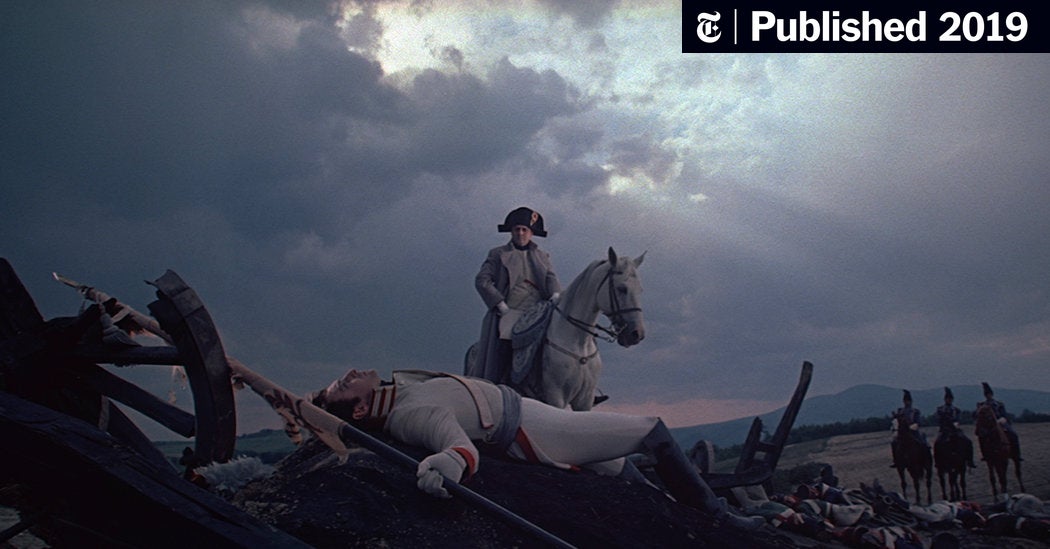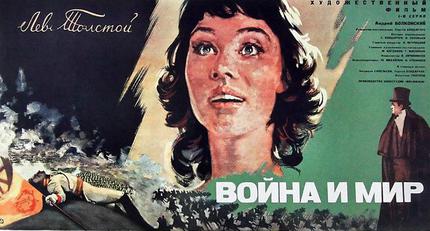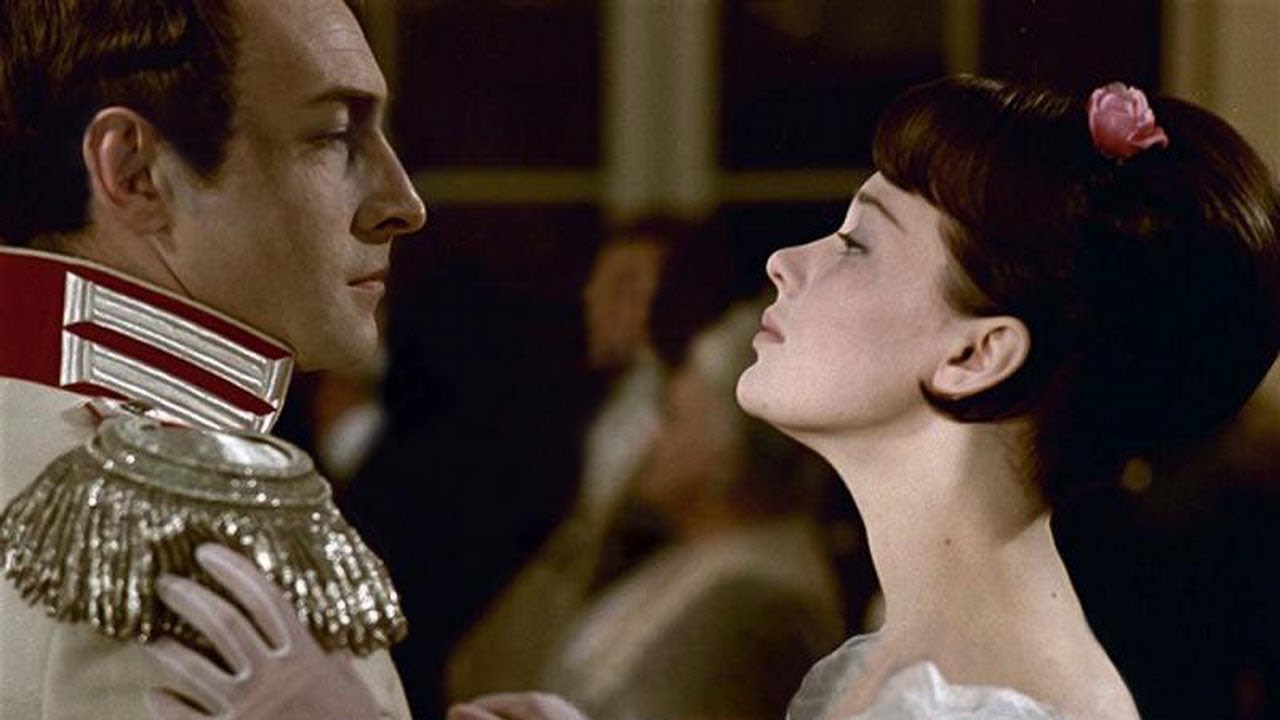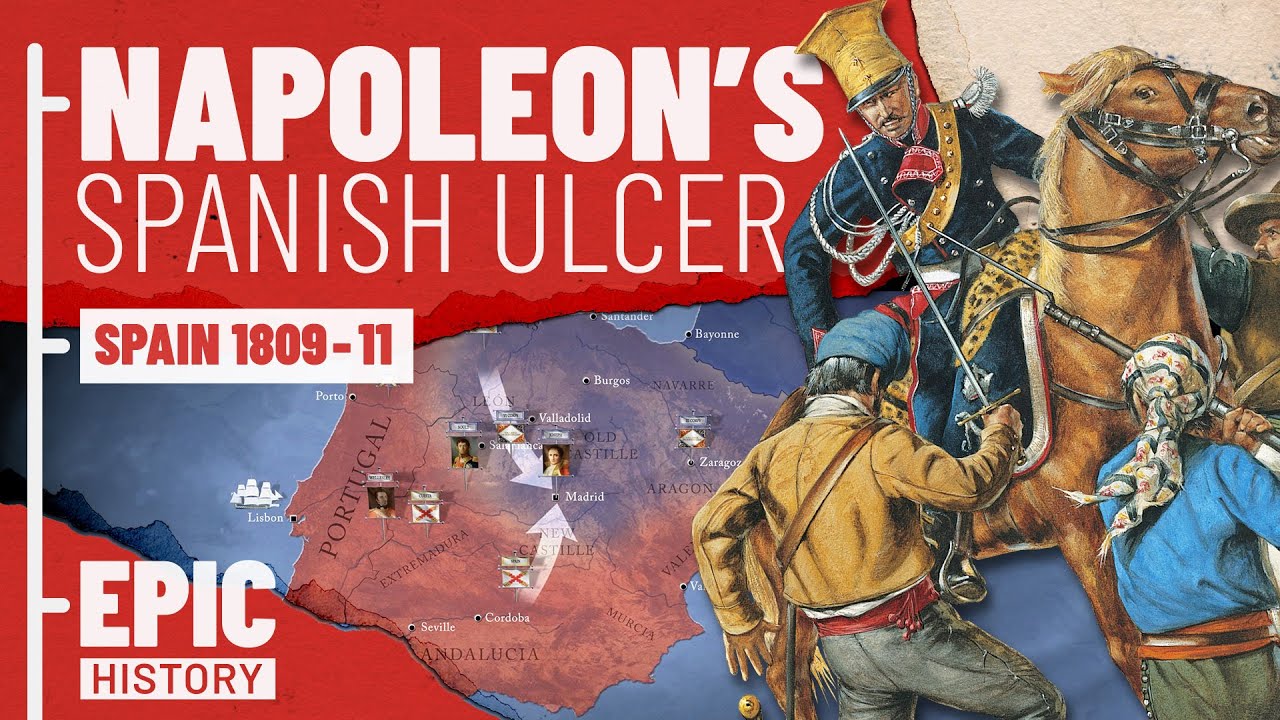IIRC at the start of the movie someone is collecting a sample of some sort and put it in a tin with a label written in "magic marker".Here's another one -- Saving Private Ryan. The landing at Omaha Beach was chillingly accurate but after that... no. The Longest Day hewed pretty close to the history.
You are using an out of date browser. It may not display this or other websites correctly.
You should upgrade or use an alternative browser.
You should upgrade or use an alternative browser.
What are the most misleading (inaccurate and/or agenda pushing) historical movies ever!? (Poll included)
- Thread starter Edmund Ironside
- Start date
Anyone remember that time the Soviet Union went crazy and greenlit Sergei Bondarchuk to make War and Peace in the 50's and 60's with unlimited resources?

 www.nytimes.com
www.nytimes.com
**Edit**
Wait, who are those statues at 0:06 and 0:10?
The Dove that symbolizes peace!
What is that bird doing?!
Is that meant to show God forsaking us?!!!
Good lord, the Red Army provided 15,000 extras.
Museums were raided.
10 years to make and 7 hours long!
It ended up being the biggest blockbuster in Soviet history and a big success.

 en.wikipedia.org
en.wikipedia.org
Historically incorrect?
Uhhh.
The Waltz @4:00 had not hit Russian high society yet?

 www.youtube.com
www.youtube.com
I forced myself to read the whole book in high school and died in the attempt.
Now my ghost haunts the internet for all eternity.
Here is the full 7 hour film!
This baby is in High Definition, so click the settings gear in the bottom of the Youtube screen and set to 1440p or 4k as needed.

A Peerless ‘War and Peace’ Film Is Restored to Its Former Glory (Published 2019)
Sergei Bondarchuk’s 1960s movie, made with a virtually unlimited budget and the backing of the Soviet state, comes to Lincoln Center this weekend.
**Edit**
Wait, who are those statues at 0:06 and 0:10?
The Dove that symbolizes peace!
What is that bird doing?!
Is that meant to show God forsaking us?!!!
Bondarchuk, a seasoned actor who had only one directing credit to his name, was chosen to direct, which confused many in the Soviet film community and led to resentment that would dog him for the rest of his life. (It didn’t help that he was known to be mercurial and difficult to work with.) He spent a year casting the film, and was obsessed with historical accuracy in the production.
So he used military planes and helicopters for aerial shots, along with about 15,000 soldiers. All museums were ordered to open their collections; sets in “War and Peace” are assembled with genuine, priceless antiques. All of this came at no cost to the producers, which is why the film’s budget is unknowable. Estimates put it at roughly $700 million in today’s dollars.
“The enormous cost is not commercially viable,” Youngblood said. “It wouldn’t have been then, but in the Soviet system, they really didn’t care. No government would ever put its weight behind a film of this scope.”
Good lord, the Red Army provided 15,000 extras.
Museums were raided.
10 years to make and 7 hours long!

It ended up being the biggest blockbuster in Soviet history and a big success.

War and Peace (film series) - Wikipedia
Historically incorrect?
Uhhh.
The Waltz @4:00 had not hit Russian high society yet?

ÐмиÑÑий ШоÑÑÐ°ÐºÐ¾Ð²Ð¸Ñ - "ÐалÑÑ". ÐаÑаÑа РоÑÑова и ÐндÑей ÐолконÑкий
Ðидеоклип на валÑÑ ÐмиÑÑÐ¸Ñ Ð¨Ð¾ÑÑаковиÑа Ñ Ð¸ÑполÑзованием Ñпизодов из киноÑилÑма СеÑÐ³ÐµÑ ÐондаÑÑÑка "Ðойна и миÑ".(Ð ÑолÑÑ ÐÑдмила СавелÑева - ÐаÑаÑа РоÑÑова ...
I forced myself to read the whole book in high school and died in the attempt.
Now my ghost haunts the internet for all eternity.
Here is the full 7 hour film!
This baby is in High Definition, so click the settings gear in the bottom of the Youtube screen and set to 1440p or 4k as needed.

Spoiler War and Peace (1966 through 1967) by Sergei Bondarchuk :
Last edited:
I guess the sister videos to the 7-hour War and Peace Soviet movie would be what Napoleon was doing at the time. 
For War and Peace Part 1 in 1805 (Andrei Bolkonsky), Napoleon did the Battle of Schöngrabern 4 weeks after Ulm and 2 weeks before Austerlitz.
For War and Peace Part 2 in 1809 (Natasha Rostova), Napoleon was beating up on Austrian Empire and Spain
The video on Spain:
For War and Peace Part 3 (The Year 1812), Napoleon invaded Russia with a giant army!
For War and Peace Part 4 (Pierre Bezukhov), Napoleon is in Moscow which burns to the ground and has to retreat from Russia because there is not enough food or shelter.
In this video @13:50, the battle of Krosnei on November 15 to November 18th should be the last part of War and Peace.

For War and Peace Part 1 in 1805 (Andrei Bolkonsky), Napoleon did the Battle of Schöngrabern 4 weeks after Ulm and 2 weeks before Austerlitz.
Spoiler :
For War and Peace Part 2 in 1809 (Natasha Rostova), Napoleon was beating up on Austrian Empire and Spain
Spoiler :
The video on Spain:

Napoleonic Wars: The Peninsular War 1809 - 11
In 1809, as Napoleon fought the Austrians at Wagram, the war in Spain and Portugal continued to rage. The French had inflicted several heavy defeats on Spani...
 www.youtube.com
www.youtube.com

Napoleonic Wars: The Peninsular War 1809 - 11
In 1809, as Napoleon fought the Austrians at Wagram, the war in Spain and Portugal continued to rage. The French had inflicted several heavy defeats on Spani...
For War and Peace Part 3 (The Year 1812), Napoleon invaded Russia with a giant army!
Spoiler :
For War and Peace Part 4 (Pierre Bezukhov), Napoleon is in Moscow which burns to the ground and has to retreat from Russia because there is not enough food or shelter.
In this video @13:50, the battle of Krosnei on November 15 to November 18th should be the last part of War and Peace.
Spoiler :
Last edited:
Hm, I had read all four major novels (Crime and Punishment, Karamazov, Possessed, Idiot) before I was 18.
But yes, Dostoevsky (anyway, the Greek translations I read) is tedious for long parts of his novels, and even the end of Crime and Punishment is rather bad (maybe he once meant to continue it, but still).
Some short stories are great, however, and a good example is Dream of a Ridiculous Man. A Pitiful Tale is also good (about trying to be friends with the employees, leading to ruin).
But yes, Dostoevsky (anyway, the Greek translations I read) is tedious for long parts of his novels, and even the end of Crime and Punishment is rather bad (maybe he once meant to continue it, but still).
Some short stories are great, however, and a good example is Dream of a Ridiculous Man. A Pitiful Tale is also good (about trying to be friends with the employees, leading to ruin).
The "War and Peace" reminded me about another historical movie I watched relatively recently, an adaptation of Mikhail Sholokhov's "And Quiet Flows the Don"
The novel is not very well known outside of ex-USSR, I believe, but according to wiki:
From what I read about the movie, the authors put a lot of efforts to make everything look authentic. They consulted with Don Cossacks who lived in the area and remembered the times of Russian Civil War, paid attention to smallest details.
I liked it, though it's definitely not the most misleading historical movie.
Short video with notable moments:
The novel is not very well known outside of ex-USSR, I believe, but according to wiki:
The book is comparable to "War and Peace" in size and was also squeezed into several hours long movie in classic adaptation of 1958.The novel is considered one of the most significant works of world and Russian literature in the 20th century. It depicts the lives and struggles of Don Cossacks during the First World War, the Russian Revolution, and Russian Civil War. In 1965, Sholokhov was awarded the Nobel Prize in Literature for the novel.
From what I read about the movie, the authors put a lot of efforts to make everything look authentic. They consulted with Don Cossacks who lived in the area and remembered the times of Russian Civil War, paid attention to smallest details.
I liked it, though it's definitely not the most misleading historical movie.
Short video with notable moments:
Spoiler Full movie with English subs :
Heh, you've never watched Tsar Saltan? Produced IIRC by Sovnarfilm.Good lord, the Red Army provided 15,000 extras.
Henri Christophe
L'empereur
The fatal problem of the ramp idea is the size of the rocks, who should be a lot heavy to be able to be drag up.I personally find the ramp theory quite plausible, and am unaware of any fatal problems with the idea.
What really happens they made up each rock mixing some fluid pre-rock. Something close to ciment.
I've got volumes III and IV on my bookshelf. Have yet to find volumes I and II. Not sure whether it's always sold in volumes in English?Mikhail Sholokhov's "And Quiet Flows the Don"
I like Crime and Punishment (and remain disappointed that the novel is not the focus of the Off-Topic thread of the same name). But I only made it a bit past halfway of The Idiot. Same translator, so probably just a preference for the former over the latter.
Haven't seen film adaptations of any of the classic Russian literary works though... and I'm struggling to think of film adaptations of other literary works either, except for a truly awful "modernized" version of Romeo and Juliet that we were forced to watch in high school. Maybe that's why I've never sought out film adaptations of classic literature? Okay, so I've heard the Lord of the Rings adaptations are better than the books, and I believe it, I didn't manage to finish those books either, and Game of Thrones was great for 6-7 seasons, but in terms of "worst adaptations/most inaccurate representations of classic literature in film?" - that could be its own topic as well. So could best/worst literary adaptation of a historical event. There's got to be some pretty bad ones out there... but the first one that comes to mind, The Captain's Daughter, would not be among those.
----
But focusing on historical movies... the one that immediately came to mind was the one at the top of the list, 300. I remember hearing about it right after learning my 400's BC Greek history, including about the Greco-Persian Wars and Thermopylae, and it sounded so cool that there was going to be a movie coming out about it soon. And then I was immensely disappointed when I read the review in the local newspaper and learned how grievously historically inaccurate it was. And then the people I knew who saw it confirmed that. I never did see it. And then to add insult to injury, the made a follow-up that was even worse. I don't know who created those films, but they are dead to me. (edit: Well I suppose Lena Headey redeemed herself as Cersei Lannister, but the people who decided on the direction of the film? Still dead to me)
Others I've seen... Gladiator. I liked aspects of it. The staging of it. Marcus Aurelius being part of it. But the inaccuracies bothered me somewhat. Particularly regarding the fates of Marcus Aurelius and Commodus. I'm not going to pick up on all the various details of historical costumes, but making up that one of the most well-known Stoic philosophers was murdered by his son? That's a bit far for poetic license.
The Last Samurai. This was the first R-rated movie I saw in a theater. The samurai were, of course, a major part of the appeal at that age. But yes, they definitely played up the American-officer-saving-(well-not-exactly-saving)-the-day trope, had to have Tom Cruise in the film somehow, right? Did it make the film better? No. And was it blatantly pro-samurai? Yes. But still, neither it nor Gladiator come closer to eclipsing 300.
I have seen either Enemy at the Gates or Stalingrad, I can't remember which, but considering a history teacher endorsed it, probably the latter.
I have not seen it nor to I plan to, but Birth of a Nation may well deserve the top spot.
I take it you saw the Leonardo DiCaprio abomination? The only good adaptation I've seen - either as a movie or on stage - is the Zeffirelli one that stars Leonard Whiting and Olivia Hussey.*a truly awful "modernized" version of Romeo and Juliet that we were forced to watch in high school. Maybe that's why I've never sought out film adaptations of classic literature?
*Not to be confused with West Side Story, which was based on Romeo and Juliet; I love the earlier movie and I worked on a production of the play in the mid-'80s.
That's the title of a Star Trek novel, by Peter David. The captain and daughter are, respectively, Captain Hikaru Sulu and his daughter, Demora.The Captain's Daughter
Khraniteli! The Soviet version adaptation, aired on Leningrad TV in 1991!Okay, so I've heard the Lord of the Rings adaptations are better than the books
Yeah, that's the one. Somehow it got above-average reviews from critics? I would have rather just stuck with the novel... although it wasn't my favorite either, but then again most of what we had to read in high school was not very interesting.I take it you saw the Leonardo DiCaprio abomination? The only good adaptation I've seen - either as a movie or on stage - is the Zeffirelli one that stars Leonard Whiting and Olivia Hussey.*
*Not to be confused with West Side Story, which was based on Romeo and Juliet; I love the earlier movie and I worked on a production of the play in the mid-'80s.
That's the title of a Star Trek novel, by Peter David. The captain and daughter are, respectively, Captain Hikaru Sulu and his daughter, Demora.
The Captain's Daughter I was referring to is a bit older, 1836, Pushkin, about the Pugachev Rebellion. Most likely just a coincidence that a Star Trek novel has the same name? Or perhaps Peter David was a fan of Pushkin.
Somehow DiCaprio's career got to the point where he could recite a grocery list and get critical acclaim for it. That's not to say I hate his movies. I eventually came to like Titanic, and even tolerate his remake of Man in the Iron Mask (though they play it as though it's a comedy, rather than historical drama as the Richard Chamberlain version is).Yeah, that's the one. Somehow it got above-average reviews from critics? I would have rather just stuck with the novel... although it wasn't my favorite either, but then again most of what we had to read in high school was not very interesting.
The Captain's Daughter I was referring to is a bit older, 1836, Pushkin, about the Pugachev Rebellion. Most likely just a coincidence that a Star Trek novel has the same name? Or perhaps Peter David was a fan of Pushkin.
There are plenty of novels titled The Captain's Daughter. The Star Trek novel is literally about a captain's daughter, as Demora Sulu was a Starfleet officer (we're introduced to her in the Star Trek: Generations movie, and Kirk wonders when Sulu had time to start a family). Sulu was promoted to Captain in Star Trek IV (though that scene was deleted; Shatner decided to be a donkey's back end about it and refused to do a usable take) and we finally got to see him in action as a captain two movies later.
I know I’m fighting a lonely battle here, but The Lord Of The Rings is a single book, not “books” in the plural. It was just originally published in multiple volumes. It puzzles me that people keep referring to it as if it’s a series when literally the very first thing it says, in the note on the text after the contents page, is that it’s a single book and not a trilogy. I wonder if in some countries it’s still commonly published in three volumes without the note on the text?
This isn't the only SF/F novel to be in that situation. I have both editions of C.J. Cherryh's novel Cyteen - the one published in 3 separate volumes and the one published as a single gigantic volume. Cherryh was displeased over the publisher's decision to release it in 3 separate parts, and has forbidden that to ever happen again.I wonder if in some countries it’s still commonly published in three volumes without the note on the text?
Long time since I've read it but Tolkien did subdivide the single book into 3 sections with their own names. The difference between that and a trilogy seems like quibbling to me.I know I’m fighting a lonely battle here, but The Lord Of The Rings is a single book, not “books” in the plural. It was just originally published in multiple volumes. It puzzles me that people keep referring to it as if it’s a series when literally the very first thing it says, in the note on the text after the contents page, is that it’s a single book and not a trilogy. I wonder if in some countries it’s still commonly published in three volumes without the note on the text?
I suppose the separate parts of a trilogy should be readable in their own right but the separate volumes of LotR are as readable in their own right as the separate volumes of ASOIAF for example and I don't think anyone would argue that is a single book.
Tolkien actually divided it into six “books”, not three. The publication in three physical volumes was forced upon him by the publishers and was not his original intention. The publisher chose the names of the three volumes, too (Tolkien was opposed to the name “The Return of the King” as it gave away the plot!).
The very first line of the “Note on the Text”, which is the very first section of the book, reads:
“J.R.R. Tolkien’s The Lord of the Rings is often erroneously called a trilogy, when it is in fact a single novel, consisting of six books plus appendices, sometimes published in three volumes.”
I think the key difference between this and Martin’s work is that Martin’s books are written and published one after the other. The final volumes are yet to appear not because of a deliberate publishing policy but because he hasn’t written them yet. Tolkien, by contrast, wrote the whole of LOTR as a single piece of work. He didn’t publish one part and then start work on the next. In that respect, LOTR is more of a single novel than many other works that we usually think of as single novels but that were published piecemeal as the authors worked on them, such as Don Quixote, Tristram Shandy, most of the novels of Dickens, Hardy, Conrad, and Dostoevsky, etc. But nobody ever calls those anything other than single novels.
I know what you mean though, it’s a pretty pernickety distinction really!
The very first line of the “Note on the Text”, which is the very first section of the book, reads:
“J.R.R. Tolkien’s The Lord of the Rings is often erroneously called a trilogy, when it is in fact a single novel, consisting of six books plus appendices, sometimes published in three volumes.”
I think the key difference between this and Martin’s work is that Martin’s books are written and published one after the other. The final volumes are yet to appear not because of a deliberate publishing policy but because he hasn’t written them yet. Tolkien, by contrast, wrote the whole of LOTR as a single piece of work. He didn’t publish one part and then start work on the next. In that respect, LOTR is more of a single novel than many other works that we usually think of as single novels but that were published piecemeal as the authors worked on them, such as Don Quixote, Tristram Shandy, most of the novels of Dickens, Hardy, Conrad, and Dostoevsky, etc. But nobody ever calls those anything other than single novels.
I know what you mean though, it’s a pretty pernickety distinction really!
Last edited:
reddishrecue
Some dude on civfans
- Joined
- Nov 16, 2009
- Messages
- 6,213
I picked movies that I liked and watched since I wasn't able to watch all of them. This list of movies almost has most of my favorites.
Moff Jerjerrod
Deity
This movie is very near and dear to my heart. The first time I saw it I was 8 years old on a fuzzy UHF t.v. channel before the advent of cable. (Yes, I'm old. I drove dinosaurs to get to school lulz)Battle of the Bulge
“Although filming only 20 years after the actual battle, the filmmakers managed to forget a lot of important details. They shot what's supposed to be a bitterly cold Belgian winter in the temperate climate of Spain and made a half-hearted attempt to recreate the cold weather. The film also lacks the hilly and wooded terrain of the real battle. The Battle of the Bulge was primarily a tank battle, and historians find the tanks in the movie laughably inaccurate. In addition to being unlike the real Tiger and Sherman tanks used in battle, the newer Korean War-era tanks employed aren't even the appropriate color. And although fuel and resources were an issue in wearing down the Germans, historians claim the real scenario was very different from what was depicted in the ending of the movie”
How Stuff Works
What I remember the most about this movie, even until today, is that looking at the men dying in battle was a shocker to my 8 year old mind. I can remember thinking to myself those poor men getting shot like that. It's not right, it's not fair. (believe it or not I didn't know those were just actors in a movie, I though it was real)
Little did I know I would go on to being a big time WW2 history buff. I couldn't get enough of WW2. I used to know the meaning of the initials LH40/k.w.k were but have long forgotten. That's how much I love WW2 history. In fact there is no other history that ever happened as far as I'm concerned.
So years later when I immediately spotted everything you described that is wrong with this movie I moved past it non-the-less. Sentiment and the impact that movie had on me which later inspired me to learn about history will always outweigh the anomalies and flaws with that movie. Same goes for any other historically inaccurate movie of that era.
Similar threads
- Replies
- 100
- Views
- 8K
- Locked
- Poll
- Replies
- 1
- Views
- 966
- Replies
- 24
- Views
- 1K

